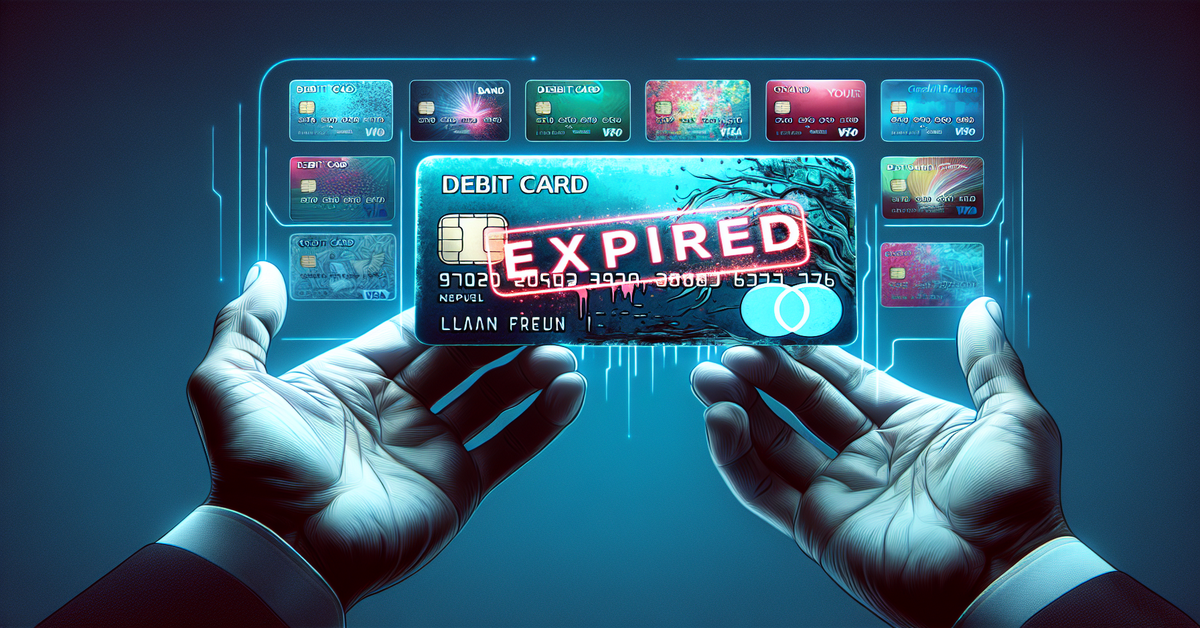Did you know that nearly 25% of consumers forget to update their payment information when their debit cards expire? This oversight can lead to declined transactions and unexpected fees. You might assume that receiving a new card is straightforward, but there are several steps you need to take to guarantee a seamless changeover. What if you don't receive a replacement on time, or your linked accounts are suddenly disrupted? Understanding these intricacies can save you from potential headaches down the line.
Understanding Card Expiration Dates
Debit cards typically have an expiration date printed on them, indicating when the card is no longer valid for transactions. It's essential to pay attention to this date, as using an expired card can lead to declined purchases and unnecessary frustration. When your card reaches its expiration, it's time to request a new one from your bank or issuer. Most institutions automatically send a replacement a few weeks before the expiration date, ensuring you won't experience any interruptions in access. Additionally, an expired card can pose security risks, as it may not support the latest fraud protection features. Always check your expiration date regularly to stay proactive and maintain the safety of your financial activities.
Accessing Your Funds
When your debit card expires, you might wonder how to access your funds until your new card arrives. Thankfully, there are several ways to manage your money safely during this time:
- Online Banking: You can log into your bank's website or app to transfer funds or pay bills directly.
- Checks: If you have checks linked to your account, you can still write them for purchases or payments.
Make sure to stay vigilant and monitor your account for any unauthorized transactions while you wait for your new card. Keeping your financial information secure is essential during this change.
Receiving a New Card
You'll typically receive your new debit card in the mail a few weeks before your old one expires, guaranteeing there's no gap in your ability to access your funds. Most banks send these cards automatically, but it's a good idea to confirm your mailing address is up-to-date. When your new card arrives, inspect it for any signs of tampering. If anything seems off, contact your bank immediately. You'll need to activate your new card, usually by calling a number or using your bank's app. Once activated, destroy your old card to prevent potential fraud. Keep your new card in a safe place, and remember to store your PIN securely. This guarantees your financial safety as you shift to your new card.
Updating Automatic Payments
It's important to update your automatic payments with your new debit card information to guarantee uninterrupted service and avoid any late fees. Failing to do this could lead to missed payments and potential service disruptions. Here are some key steps to take into account:
- List your automatic payments: Identify which services are linked to your old debit card, like utilities, subscriptions, and loans.
- Access your accounts: Log into each service's website or app to update your payment information securely.
Potential Fees and Charges
Expired debit cards can lead to unexpected fees and charges if you don't act quickly to update your payment information. Many companies might attempt to process payments with your old card, and if they fail, you could face late fees or service interruptions. Additionally, some banks charge insufficient funds fees if an automatic payment doesn't go through. These charges can add up rapidly, impacting your budget. To avoid these pitfalls, regularly check your account statements and promptly update your payment details with service providers. It's also wise to monitor your bank account for any unauthorized transactions that might arise during this shift. Staying proactive can help you sidestep unnecessary financial surprises and maintain your financial safety.
Security Considerations
Neglecting to replace your expired debit card can also expose you to security risks, especially if you forget to update your payment information with online services that store your card details. Leaving outdated information can lead to unintended charges or fraudulent activity.
Consider the following risks:
- Unauthorized Transactions: If someone gains access to your old card details, they could make purchases without your knowledge.
- Account Linking Issues: Services may fail to process payments, causing accounts to be suspended or access to be denied.
To safeguard your finances, stay proactive by replacing your card promptly and ensuring your information is current across all platforms.
What to Do If You Don't Get a New Card
If you haven't received your new debit card by the time your old one expires, it's important to take immediate action to avoid any disruption in your banking services. Start by contacting your bank's customer service. They can help track your card's status and determine if there's been a delay. Make sure to confirm your mailing address is correct, as a simple error can cause issues. If your card is lost or stolen, request a replacement immediately to protect your account. In the meantime, consider using online banking or mobile payment apps for transactions. Staying proactive will guarantee you maintain access to your funds and keep your financial activities running smoothly.
Tips for Managing Your Cards
Staying on top of your debit and credit cards can help you avoid issues when your current card expires or if you're waiting for a replacement. Here are some practical tips to manage your cards effectively:
- Set reminders: Keep track of expiration dates by using calendar alerts a month in advance.
- Monitor balances: Regularly check your account statements to guarantee everything's in order and to catch any unauthorized transactions early.

